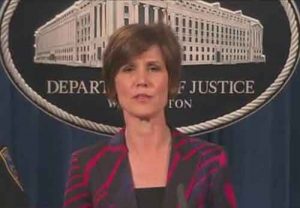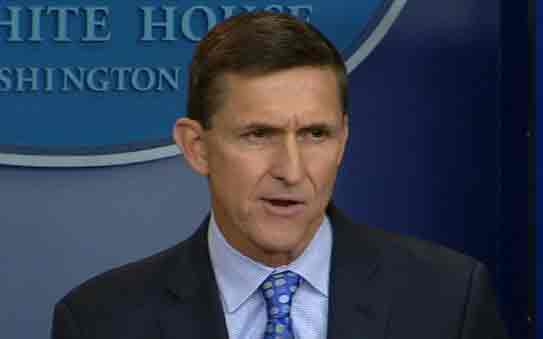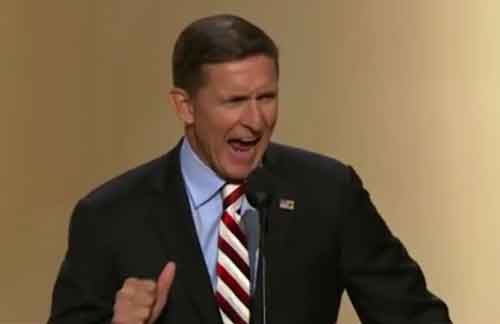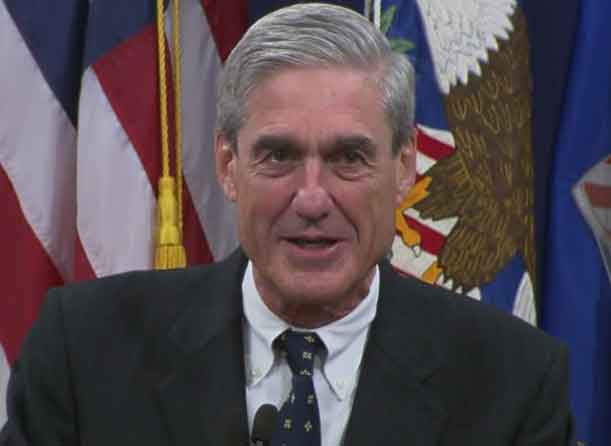
WASHINGTON — The U.S. presidential election was six months ago, but a Senate panel Monday is probing further into Russian meddling in the contest and connections between aides to President Donald Trump and Moscow interests, even as he disparages the effort.
Trump, not wanting to give credence to any Russian link that undermines the legitimacy of his election victory, hours before the hearing blamed the administration of his predecessor, former president Barack Obama, for giving his controversial former national security adviser, retired Army General Michael Flynn, “the highest security clearance.”
Trump, who fired Flynn after just 24 days on the job for lying to Vice President Mike Pence and others about his contacts with the Russian ambassador to Washington, said on Twitter “the Fake News (mainstream U.S. media) seldom likes talking about” Flynn’s security clearance.
While Flynn had the clearance, investigators say he failed to disclose more than $30,000 he received for attending a 2015 Moscow dinner, while seated next to Russian President Vladimir Putin, to celebrate the Kremlin-sponsored RT (formerly Russia Today) television network, and more than $500,000 to represent Turkey. He accepted the payments, the investigators say, after specifically being warned when he retired from the military to not take money from foreign governments.
Early warnings about Flynn
Sally Yates, who was briefly acting attorney general, the country’s top law enforcement official, in the early days of the Trump administration before the new president fired her, is testifying before a Senate Judiciary subcommittee about concerns she had about Flynn.[xyz-ihs snippet=”adsense-body-ad”]Yates had been a key Justice Department official under Obama and is expected to answer questions about warnings she gave the incoming administration about discussions Flynn was having with Sergey Kislyak, the Russian ambassador in Washington. The calls were captured on routine U.S. intercepts of Kislyak’s conversations.
Yates feared that as a result of Flynn’s denial of his contacts with Kislyak in discussions with Pence and others that Flynn might be vulnerable to blackmail.
Trump, in another tweet, said the Senate panel ought to ask Yates “under oath, if she knows how classified information (the intercepted Kislyak calls) got into newspapers soon after she explained” it to White House lawyers.
Ask Sally Yates, under oath, if she knows how classified information got into the newspapers soon after she explained it to W.H. Council.
— Donald J. Trump (@realDonaldTrump) May 8, 2017
Ex-intel chief to weigh in
In addition, James Clapper, Obama’s director of national intelligence, is expected to testify. He was instrumental in the U.S. intelligence community’s conclusion that Russia sought to boost Trump’s chances of winning the election by hacking into the computer of the campaign chief for his opponent, former U.S. Secretary of State Hillary Clinton.
The anti-secrecy group WikiLeaks subsequently released thousands of emails in the weeks before the election that showed embarrassing behind-the-scenes Democratic operations aimed at helping Clinton win her party’s presidential nomination.
Clinton last week partly blamed her upset loss to Trump on the release of the emails before the November election.
Trump continues to downplay the congressional investigations of Russian meddling and a probe by the Federal Bureau of Investigation, the country’s top law enforcement agency, into whether Trump campaign aides criminally colluded with Russian interests to help him win.
Last week, he again rejected the official view that Russia hacked into the computer of Clinton campaign chief John Podesta, saying that it “could have been China, could have been a lot of different groups.”
In a tweet, Trump said, “The phony Trump/Russia story was an excuse used by the Democrats as justification for losing the election.”





